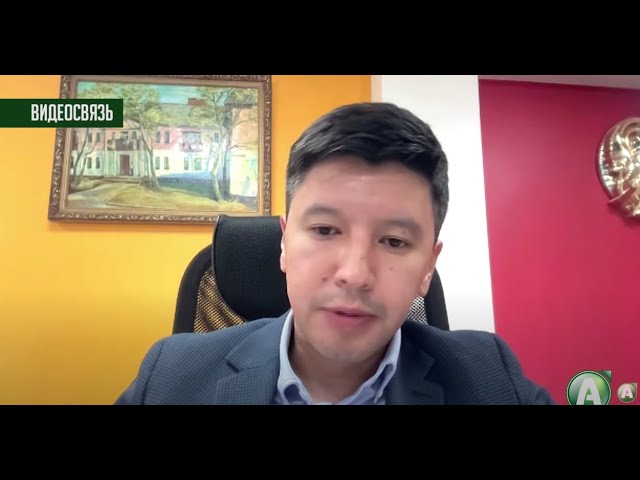Kazakhstan, as a country with a high dependence on oil exports, is particularly vulnerable to price fluctuations on the world market. In response to these challenges, the Government has developed a number of strategies aimed atreducing dependence on oil revenues in the budget and increasing the volume of gold and foreign exchange reserves. However, the implementation of these plans raises questions. On the one hand, there is a need to accumulatereserves of up to $ 100 billion by 2030, and on the other, there is an urgent need for significant investment in infrastructure and social programs.
Key elements of the new budget policy
The main strategic initiative of the Government of Kazakhstan in recentyears is to reduce the dependence of the budget on oil revenues. As part of this strategy, the goal is to reduce the share of the oil budget to 5% of the total volume. This ambitious decision involves finding new sources of income and diversifying the economy, which is extremely important in the context of fluctuations in world oil and hydrocarbon prices. At the same time, the government has set a goal of accumulating gold and foreign exchange reserves to the level of $ 100 billion. This is necessary to create a financial buffer that can help the country cope with external economic shocks and support the national currency during periods of financial turbulence on the world stage. Such a policy implies strict adherence to budget discipline and increased efficiency in the management of stateassets.
However, despite the apparent foresight of these measures, they cause considerable controversy among the expert community. On the one hand, the desire to accumulate significant reserves requires a significant reduction in government spending and restrictions on investment in key sectors of the economy. On the other hand, Kazakhstan faces the need for urgent investment in infrastructure and social spheres, which requires the active use of available financial resources.
"As for the ideologyof fiscal policy, you mentioned the reduction of the oil budget to 5% and the accumulation of gold and foreign exchange reserves to $ 100 billion. I think this is a bit of a controversial task, as the country faces a huge need to invest in infrastructure. We are all waiting инfor an infrastructure plan, and when approaching it, it is a multiple of our financial capabilities. On the other hand, we set the goal of accumulating$ 100 billion. Why this amount? Becauseit's a round and beautiful number?At the best of times, it peaked at $ 77 billion. Youalso have the dilemma of either saving or spending. Now obviously, we need to spend. This goal doesn't seem contradictory to you?" – Rahim Oshakbayev, Chief Economist of the TALAP Center for Applied Research.
Not only they stressed during the round table that the lack of investment can increase the existing structural problems of the economy, slow down the growth rate and worsen the quality of life of the population.
"We definitely need to find a balance. They are probably contradictory, and there are two parallel tasks. And when we counted $ 100 billion, calculations were made, the forecast of receipts and withdrawals of funds from the National Fund was made. And taking into account the fact, that in the long-term period, when we looked at and made these calculations, we just got a figure of about $ 100 billion. It is clear, that there is volatility, and we are not going anywhere from it, but we approached this issue quite conservatively when we counted these figures. In general, there is a margin of safety and the task of meeting the post-consumption targets of up to $ 100 billion per Нyearд, and we will do this by 2030” " said вAzamat-миAmrin, Minister of National Economy of the Republic of KazakhstanАзамат Амрин.
Problems of the budget system
” The system of state finances consists of many elements, and it should be balanced and managed according to a single principle and with one goal, “said the director Центраof the Centerfor Applied Research "TALAP” Askar Kysykov.
If we take a comprehensive approach to the system of state finances and what role it plays, the total amountа of revenue is more than 40 trillion tenge. The role of the state in the country's financial system is very high - 40% of GDP.
We are increasing flows bypassing the budget, that is, through non-budget funds, while they are removed from-all budget procedures. These are the UAPF, the State Pension Fund, and the Federal Social Insurance Fund, which means that currently 3.3% of GDP is redistributed through these funds. These are essentially taxes,since theyу are mandatory payments.
"Accordingly, we are increasing the burden on the wage fund," said Kysykov
Despite a steady trade surplus and high oil prices, if we consider the consolidated budget, we have a deficit in the last 5 years. The country spends its assets, not saves. In this regard, the national debt has grown by 77% in 5 years. Asистые активы a result, net assets decreased to 1.6% of GDP.
Now the government is placed in such conditions that it can balance the budget in three ways: Taxes from the non-oil sector, dividends, loans.
“I think that these rules may need to be revised. In any case, Kazakhstan is an oil-dependent эконоeconomy. And if we have oil revenues, we probably, need to give some kind of tool so that some of these taxes go to the budget, maybe not as a transfer, but directly at the cut-off price, so that the government balances the budget from a certain цены oil price. Then the National Fund will be preserved and take оттуда money from there only for some super-priority development budget, important national projects that will pass through the Parliament and the whole society will know about their effectiveness, " Kysykov said.
Rahim OshaKbayev, in turn, suggested looking at the concept of crisis a little more broadly. Not only in terms of convergence and the cash gap, but also in terms of the efficiency of budget expenditures.
“We can conditionally increase spending on some area, but theefficiency of conversion to utility may decrease. We spent even more on healthcare, but the nation has become sicker. We bought a lot of tomographs, some of them made a lot of money on this, they are dusty and there are no specialists. Paradoxically,our coverage of expensive equipment is much higher than in France. But the nation's health is worse. We have reduced the availability of medical care for
vulnerable segments of the population due to the clumsy system of compulsory health insurance. An excellent example was given with the questionof water supply. If we conditionally take this 1 trillion tenge even with the system already adopted, will this save the situation? If two, ten?"- said Oshakbayev.
One of the main problems of the budget system in Kazakhstan is the lack открытостиof opennessand transparencyof reporting. Public finances and budget expenditures often remain closed to public scrutiny, leading to abuse and strengthening corruption schemes. Many decisions on the allocation and use of budget funds are made without properjustification and control.
The quality of the economic forecasts underlying budget planning is also seriously criticized. Forecasts are often based on unrealistic expectations or outdated data, which leads to the need for constantbudget adjustments throughout the fiscal year. This not only creates additional difficulties in managing public finances, but also undermines confidence in public institutions. In addition, the discrepancy between macroeconomic forecasts and the realeconomic situation hinders the effective allocation of resources and the planning of long-term government programs.
Today, Kazakhstan has two key legislative documents that regulate the consolidated budget system in the country –the Budget Code and the Concept of Public Finance Management, which creates deep problems in controlling the budget system.
For example, the National Fund is a keyая part of the budget system and budget policy, but specific rules onльзованию the use of National Fund funds are beyond the control of the Parliament and are regulated by the Concept. The current organization of budget legislation (the existence of a separate Concept) createsa significant conflict of interest and reduces the role of Parliament inthe budget system.
Corruption risks and their impact on the financial system
After analyzing corruption risks, Bolat Kassymov from the Eurasian Development and Innovation Fundй said that the state года has investedmore than 1 trillion tenge in water supply since 2010 вопр. At the same time, most of the facilities in Kazakhstan do not work. As an example, the speaker cited the case of the ASTaninsky NFS-3, for which потратилиabout 50 billion tenge was spent.
“It could have been built дваtwice as cheap. In the village Новоишимское в 12 of Novoishimskoye, the demand was exceeded 12 times. The city of Turkestan - 4 times. There is widespread corruption and ineffective decisions. In addition, the country does not have the proper quality of work acceptance at all stages of implementation”" Aзал он.
Решениеsolution to the problem, including the water crisis, is possible only в том случаеifcivil society and industry specialists are involved as much as possible.
The fight against corruption нrequires a comprehensive approach, which includesит в себя модернизациюmodernizingthe law, increasing the transparency ofосинститутState institutions, and creating effectiveoversight mechanisms.
The need for reform: expert opinions and suggestions
Experts are unanimous in their opinion that the budget system of Kazakhstan needs significant reforms. Among the key reform proposals, the following areas are highlighted:
-
Increase the transparency of the budget process. It is necessary to introduce clear and understandable mechanismsfor trackinggovernment expenditures and revenues;
-
Standardization of budget accounting and reporting according to international standards. Transition to international accounting standards;
-
Reform of the public finance management structure. It is important to review the structureof financialmanagement, including the division of responsibility between different levelsями of government.
-
Introduction of civil control mechanisms. Creationof independent public councils and platforms for discussing budget issues.
Experts emphasize that only a comprehensive approach to reforms canlead to stabilization of the financial system and sustainable economic development. Murat Temirkhanov, economist and advisor to the Chairman of the Management Board of Halyk Finance, points out the importance of resolving issues not only of a technical, but also of a political nature.
"The reformof the budget system should go hand in hand with strengthening the institutional independence of economic regulators from political influence to ensure their ability to act in the interests of the whole country, and not individual groups," he said.
Author: Центр прикладных исследовании TALAP




